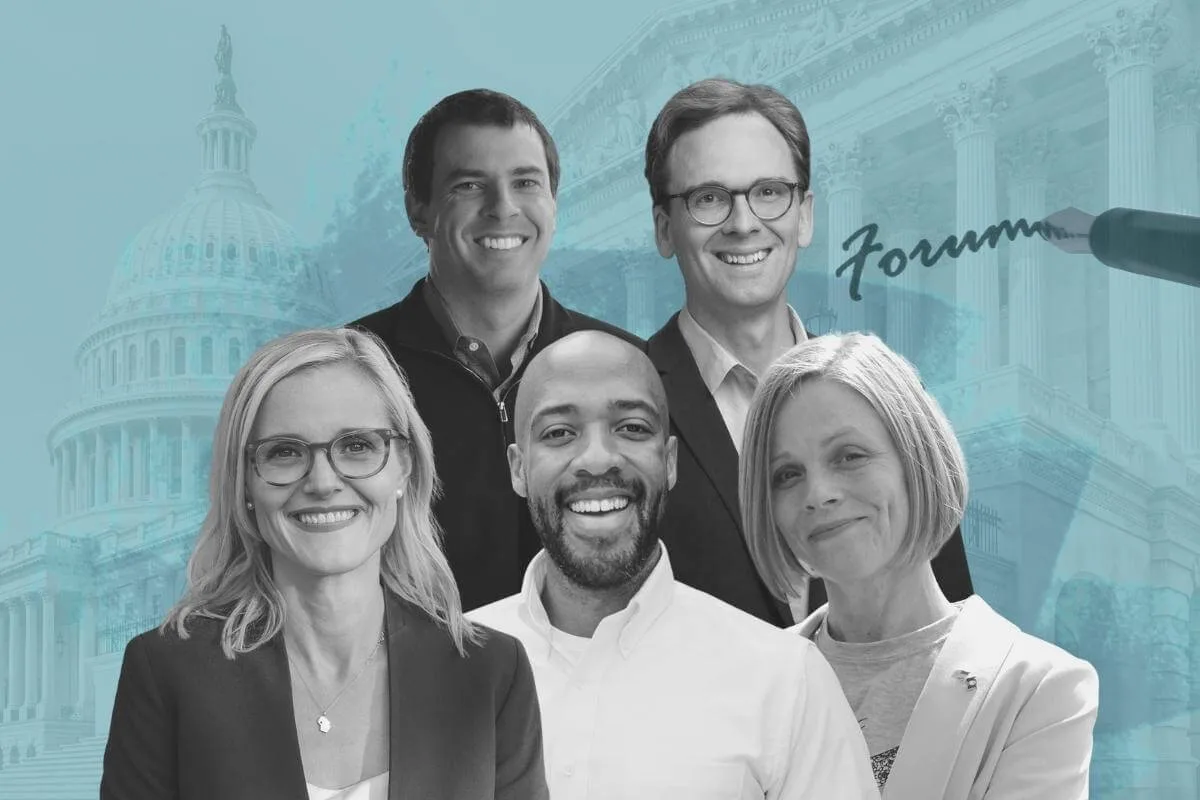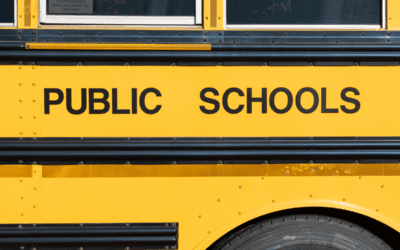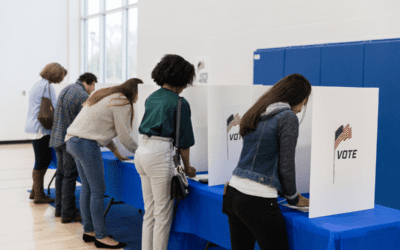
#image_title
More than 800 people turned out for the virtual event, which organizers said they were using to find a candidate that could run on big issues and turn out voters.
Five Democrats looking to unseat Republican US Sen. Ron Johnson next year—Lt. Gov. Mandela Barnes, state Treasurer Sarah Godlewski, former Milwaukee Bucks executive Alex Lasry, radiologist Gillian Battino, and Outagamie County Executive Tom Nelson—took part in a candidates’ forum on Wednesday evening.
The event marked the first major forum ahead of next year’s primary and election. A crowded field of 12 Democratic candidates has emerged to reclaim the Senate seat that Johnson has held for two terms (he has not announced whether he will run for a third term) after defeating Democrat Russ Feingold in 2010 and again in 2016.
Hosted by grassroots political organizing groups Citizen Action of Wisconsin and People’s Action, the virtual event was attended by more than 800 people from across the state hailing from major cities and smaller communities.
Emphasizing the need to beat Johnson and win a stronger Democratic majority in the US Senate, Executive Director of Citizen Action of Wisconsin Robert Kraig said the organization hoped to use the forum to find a candidate willing to separate themselves from the crowded field by “running on big issues” and showing they are able to turn out voters.
“For the first time in half a century we have enough power in Washington to be talking about very big, bold, generational reforms that will really improve people’s lives,” Kraig said. “Although Congress is on the verge of these reforms, I think we are all well aware that we are two votes short of the majority we need in the Senate to advance all of the critical reforms we need.”
The candidates fielded a half-dozen questions during the roughly two-hour event, most from members of Citizen Action of Wisconsin’s regional co-op members. The questions focused heavily on broad Democratic initiatives like health care and Medicare for All, union and workers’ rights, immigration reform, ending mass incarceration of Black men and women, and fighting climate change.
RELATED: Following the Money: Investigation Shows How Ron Johnson Secured a Giant Tax Break for Mega GOP Donors
Despite promoting their individual calling cards, the candidates gave largely similar responses to each question, saying they would fight vigorously for Democratic legislation aimed at providing a path to citizenship for undocumented workers, and supporting climate legislation often called the Green New Deal. Both measures face uphill battles in Congress, even with Democratic majorities in both houses.
Signature Issues
Nelson said he was making Medicare for All the cornerstone of his campaign.
“I am tired of supporting proposals that simply nibble around this monster that keeps getting larger and larger,” Nelson said, adding, as his fellow candidates did, that patents for things like the COVID vaccines and life-saving drugs should be revoked, especially if the companies received federal funding to develop the medicines.
Godlewski noted that the country needs to do more to make sure everyone in the state, like residents in underserved rural areas, have access to mental healthcare.
“Right now in rural Wisconsin there isn’t even a psychiatrist in every county and [people] don’t have the broadband access they need to get tele-medicine,” she said.
Responding to a question about how they would address the state’s staggering incarceration rate, especially as it relates to Black and brown communities, candidates said they supported legalizing marijuana and doing away with mandatory minimum sentences.
Battino, of Wausau, said “mass incarceration has been utilized as a tool for voter suppression,” and is still being used that way to this day.
To push back against mass incarceration, Battino said the country would need to, among other things, end the war on drugs, legalize marijuana and forgive related convictions and sentences made as a result of existing marijuana drug laws, and stop the privatization of prisons and jails.
When asked whether he would support the pro-union Protect the Right to Organize (PRO) Act, Barnes, like the rest of the candidates, gave an emphatic “yes,” noting that he would not have had the opportunity he’s had in his life were it not for the good-paying union jobs his mother and father had. His mom was a school teacher and his dad made catalytic converters at a former Milwaukee factory.
“They were able to provide a certain quality of life that could have been considered a luxury to so many of the people I was around,” Barnes said. “It is unconscionable that the level of income inequality in this country continues to balloon, because our unions were only the thing that kept that in check. “
Touting a string of union endorsements, Lasry said passing the PRO Act was a top priority. He also noted that his campaign staff is unionized.
“We’ve shown that labor and management can work together to make sure we grow business and raise wages,” Lasry said. “How do we make sure that we’re raising wages? That starts with making sure workers have a seat at the table.”
There are 12 Democrats officially in the race for Johnson’s US Senate seat. The other candidates include: Milwaukee attorney Peter Peckarsky; former state Senate candidate Adam Murphy; Milwaukee Alderwoman Chantia Lewis; Steven Olikara, founder of the political nonprofit Millennial Action Project; Darrell Williams, administrator of the Wisconsin Office of Emergency Management; disabilities advocate Jeff Rumbaugh; and Kou Lee, owner of an Appleton restaurant.
The nominee in the August 2022 primary will face Johnson—or another Republican candidate if he does not run—on Nov. 8, 2022.

Opinion: Many to thank in fair maps victory for Wisconsinites
On February 19, 2024, Governor Tony Evers signed into law new and fair state legislative maps, bringing hope for an end to over a decade of...

Opinion: Empowering educators: A call for negotiation rights in Wisconsin
This week marks “Public Schools Week,” highlighting the dedication of teachers, paras, custodians, secretaries and others who collaborate with...

Op-ed: Trump’s journey from hosting The Apprentice to being the biggest loser
Leading up to the 2016 election, Donald Trump crafted an image of himself as a successful businessman and a winner. But in reality, Trump has a long...

Not just abortion: IVF ruling next phase in the right’s war on reproductive freedom
Nearly two years after the US Supreme Court overturned Roe v. Wade, another court is using that ruling to go after one of the anti-abortion right’s...




